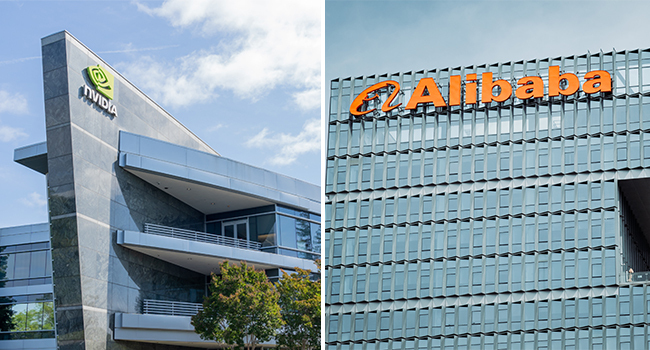Alibaba on Wednesday announced what it called a “milestone collaboration” with US chip giant Nvidia. The partnership will speed up Alibaba’s work on humanoid robots using artificial intelligence.
The news came as Alibaba’s shares rose by more than nine percent in Hong Kong after Chief Executive Eddie Wu revealed plans to increase spending on artificial intelligence.
China and the United States are currently locked in a tough competition over advanced technology. Nvidia, based in California, is a global leader in AI chips and a key player in the race for dominance in semiconductors.
However, Washington has restricted Nvidia from exporting its most advanced chips to China. These chips are essential for the latest breakthroughs in generative AI.
Alibaba, which operates some of China’s largest online shopping platforms, said it is teaming up with Nvidia in the field of physical AI.
The company explained that its cloud division is now integrating “the full suite of the Nvidia physical AI software stack.” It described the deal as “a milestone collaboration.”
According to Alibaba, this initiative will give developers a powerful, cloud-based platform to push forward new solutions in humanoid robotics and physical AI.
The announcement was made in Hangzhou during a subforum of Alibaba’s annual developers’ conference, where executives from both Nvidia and Alibaba Cloud took part.
Back in February, Alibaba said it would spend at least 380 billion yuan ($53 billion) on AI and cloud computing over the next three years.
On Wednesday, CEO Eddie Wu confirmed the company is moving ahead with this investment plan and hinted that even more spending could follow.
Wu also revealed that energy use at Alibaba Cloud’s global data centers will be ten times higher by 2032 compared to 2022, when AI chatbots first became popular.
In March, China announced a trillion-yuan support fund for tech startups, including those working in AI and robotics.
China is already the world’s biggest market for industrial robots, according to official figures.
But Beijing has also raised national security concerns about Nvidia chips, urging local businesses to depend more on domestic semiconductor suppliers.
Last week, Nvidia CEO Jensen Huang said he was “disappointed” by reports that Chinese firms were blocked from buying the company’s RTX Pro 6000D chips — processors designed specifically for China.
This followed a US government decision last month requiring Nvidia to pay Washington 15 percent of revenue from certain AI chip sales in China.


